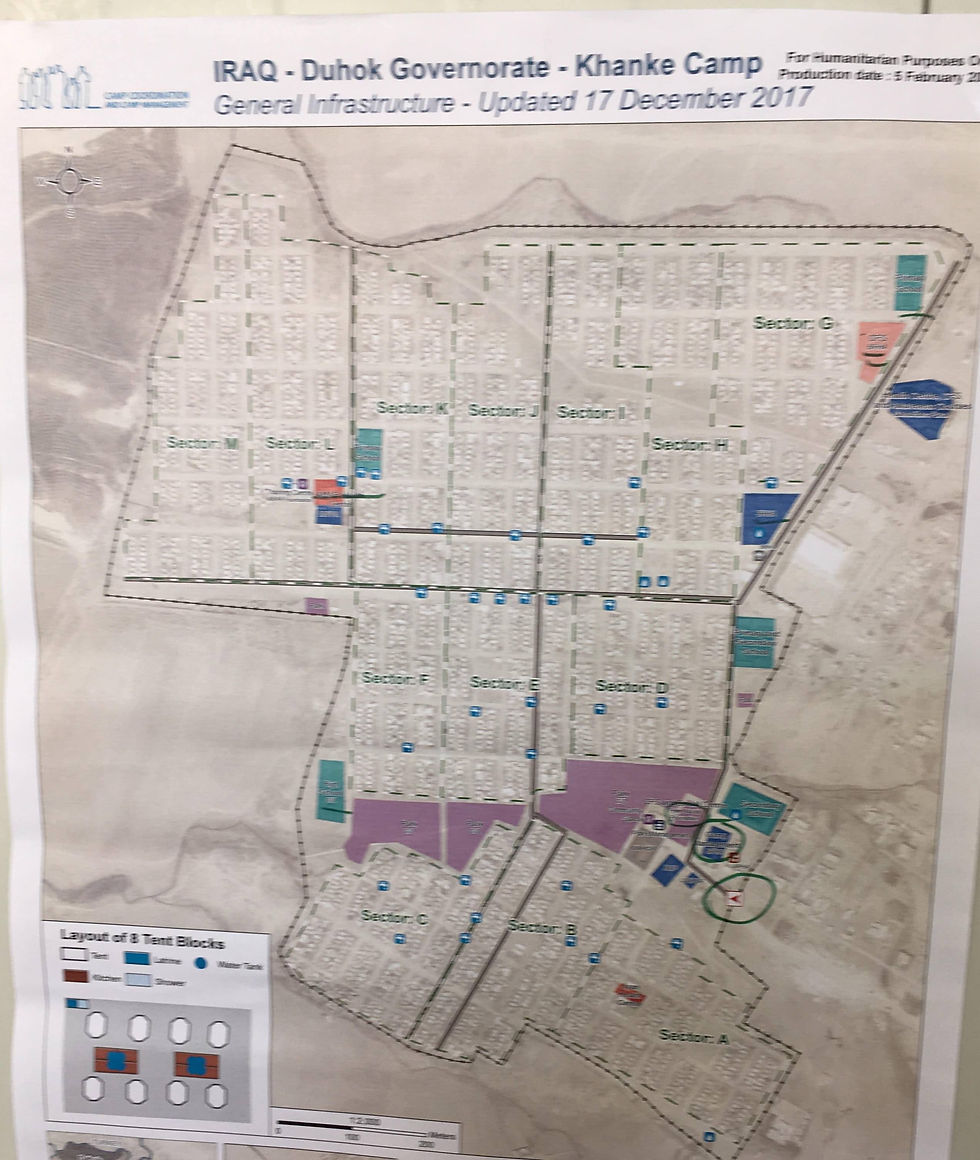I Was Eaten by a Mouse
- FLAPPER PRESS

- Mar 8, 2019
- 3 min read
By Jane E. Drichta:
A mouse. Of course, there are mice here in our Yezidi Internally Displaced Persons (IDP) camp here in northern Iraq. However, this was the first time I had heard of them eating a copy of the Edinburgh scale for Postnatal Depression, and by the look on my clinical director Lara’s face, this was a new one for her, too. We tried to keep our faces straight, but the absurdity of the whole thing got away from us, and we laughed until tears ran down our faces.

Our little maternity clinic here at Global Motherhood Initiative serves survivors of the genocide against the Yezidi people, perpetrated by ISIS in August of 2014. Thousands of Yezidi were massacred in the space of a few days, with over half a million fleeing their homes in the Shingal area. Many women and children were taken into slavery, to be bought and sold as sex slaves for ISIS fighters. It is estimated that approximately 2,500 people remain in captivity. Every single person in our camp of over 16,000 people has lost family and/or have family members who remain in captivity. This is their reality, a legacy of death, trauma and weaponized rape.
This is our community. As both founder of Global Motherhood Initiative (GMI) and also Country Director of the Free Yezidi Foundation, my days are varied and long. Our compound is home to not only the GMI maternity clinic, but also our new dental clinic, and all of Free Yezidi Foundation’s programming.

I could not love our joint mission more: trauma recovery for victims of the genocide in the form of intense individual and group therapy provided by two incredibly dedicated psychologists and huge amounts of psychosocial support in the form of classes in English, computers, sewing, knitting, art, and my favorite . . . women’s rights.
We also run a children’s center, which is the best and worst thing ever. You haven’t really stared into the Darkness until you have an eleven-year-old act out an ISIS beheading on the playground. I have three graduate degrees, but somehow there wasn’t a class in this stuff. The staff here works with these children on a daily basis: the returned child soldiers, the kids whose families now lie in unmarked, undiscovered mass graves fifty miles away, the ones who have been forgotten by governments and funders.
You’d think it would NOT be a Hard Thing to get money for children’s programming. CHILDREN. You would be wrong. I know. I will hold your heart if you’ll hold mine.

Both our dental clinic and maternal health clinic screen for mental health issues amongst our beneficiaries, which brings us back to the aforementioned mouse. We use the Edinburgh Scale to screen for antenatal and postnatal depression in our maternal health clients, often giving it to the women to complete at home. Apparently, along with the normal everyday barriers to care (domestic violence, crowded schedules, no childcare), we now have to contend with voracious rodents. At least this one can be solved by printing out another copy.
I wish the rest of it could be so easily solved.

However, even in the midst of tragedy, life does go on. People fall in love, children are born. Families stick together, and eventually our hard, wet winters ease, and new crops are sown in the fields.
Our victories may seem small, but to us, they are momentous.
A mother learns to write her name. A daughter gets a job at the local mall. A grandmother shows her grandson how to save a file on a mobile phone. Small things, certainly, but together they are a quilt, little scraps of life held together by uneven but sturdy stitches. And quilts, even when threatened by mice, become heirlooms, symbols of resilience and love.










Comments